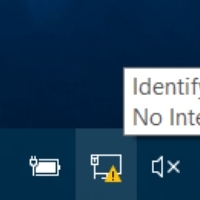
By Anand Khanse
What happens to online accounts when you die?
There are two aspects to your life. One is the physical life that you are living – with assets such as house, car, bank accounts etc. You take care of these belongings in your lifetime and create a will to let people know what to do with your physical assets. The other aspect is your life associated with your computer and the Internet. You spend considerable time creating a collection of music/images/movies offline and online. You make posts on Facebook, LinkedIn, Google Plus and other social networking sites. You have emails that contain all types of information.
Ever wondered what happens to all these online digital assets after your death?
Probably your computer and disks might be acquired by your kin but what about the numerous posts you made on the social networking sites? What about the emails you stored with Hotmail, Gmail and other service providers? What happens to the thousands of images you have stored to Flickr? Maybe you run a website or a blog or an online business. After your death, who is going to enjoy the movies you have uploaded to one of the cloud services…or take the earnings from these online assets?
Facebook vs Stassen
People do not even think about their digital assets while preparing their will. More than often, they forget about their digital assets that are forever left discarded on the Internet after they die. As such, there are no rules or laws to direct the Internet based companies about what to do with the digital data of their clients when they die. It was only after certain cases came up in the courts of law that different companies came up with different solutions.
Benjamin Stassen, the 21 year old son of Helen and Jay Stassen committed suicide without leaving a note. When Helen and Jay could not find any cause why Benjamin took the extreme step, they decided to check out his emails and social feeds to know the reason. But this was not easy. Gmail and Facebook said they were concerned about Benjamin’s privacy and would not give the parents’, access to his account.
This is an issue for debate. In case of physical assets, the immediate kin gets authority over the assets of deceased in case the latter does not provide a will. But in case of digital assets – email and Facebook feeds – there are no laws. Furthermore, these companies have contracts talking about protecting the privacy of users.
Do you think they are correct in protecting the privacy and denying the request of Stassens? After all, if Benjamin wanted to share anything with his parents, he would have given them access to his Facebook and Gmail accounts while he was alive…
Anyway, Stassens went to the court of law and got orders asking Gmail and Facebook to provide them with access to Benjamin’s accounts so that they can look into the issues that drove him to commit suicide. While Google obliged, Facebook continued to deny access saying it was a matter of privacy and hence, it cannot provide the Stassens, access to Benjamin’s account. It remains to be seen if Facebook appeals against the ruling or accepts it.
Cases such as the above have forced people to think about their digital assets and how to deal with them in case of death. Accordingly, some of the Internet based companies came up with their own set of rules as to what will happen to the data once the user is dead. We will talk about these rules in a while.
Create A Separate Will For Online Digital Assets and Accounts
To avoid confusion and to save problems to your kin, the best method I can see is to create a will that describes clearly as what to do with your digital belongings. You might want to instruct who gets your music and movie collections. It is a good idea to keep all the records of purchases at one place so that people can know the exact value of these collections after your death.
In the same way, you instruct whether your blog has to be maintained by anyone else or is it to be closed. You can instruct who gets access to your Flickr account and all the images in the account. Similar instructions go for all other important presence on the Internet – email accounts, Twitter, Facebook and Google etc.
Since you cannot transfer these assets to others without giving them the passwords to these accounts, it is recommended that you create a separate will for your digital assets with different sections for different assets and their passwords. That way, only the people who get particular assets gets to know the passwords.
Note that your normal will is made public the moment you die. It is not advised to include passwords in the normal will as it will give away your passwords to everyone who can access the will. That is why, I recommend a separate will entrusted to someone who respects your privacy. Also remember that you do not have to share or give away everything you own. If you have a collection of porn, you may want it to go unnoticed rather than giving it away to your kids.
This is just a suggestion that I think will work out. Please let us know your thoughts in the comment boxes below.
What if You Don’t Have a Seperate Will?–Article continued here
This excerpt is shared with permission from The Windows Club.



